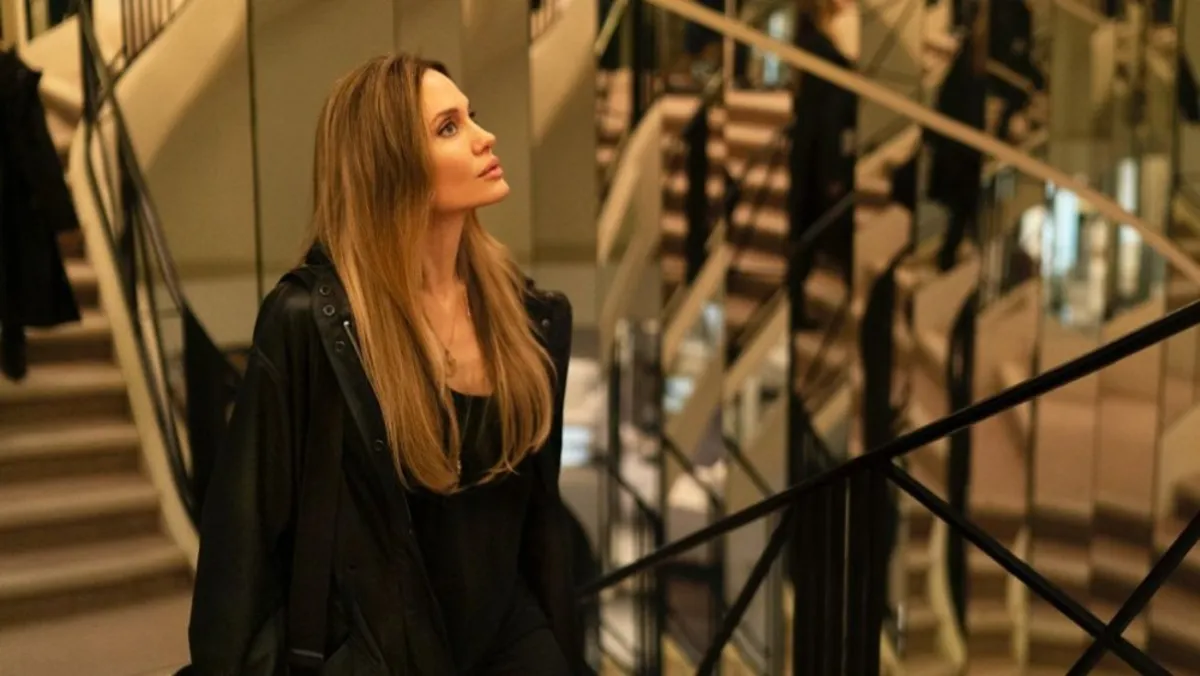
“Couture” is a captivating drama set against the backdrop of Paris Fashion Week, featuring the talented Angelina Jolie in the role of Maxine Walker. Maxine is a goth-glam director known for her indie horror films, who ventures to Paris to shoot an extravagant short film. This film, which includes elements like a forest fire and wolves, is designed to accompany the runway show of a prestigious yet unnamed fashion house—hinted to be Chanel.
At first glance, “Couture” promises a backstage look filled with the glitz and glamour of the fashion industry. However, the film adopts a surprisingly neutral and understated style, reminiscent of French cinema that blurs the lines between documentary and fiction. Jolie leads an ensemble cast in a narrative that unfolds like a loose neorealist exploration of the fashion world. The film introduces us to a diverse array of characters, including an 18-year-old model from Sudan, Anyier Anei, who is poised to become the new face of fashion, and a makeup artist, Fella Rumpf, who faces the harsh reality of a memoir deemed commercially unviable.
Maxine’s journey is interwoven with the lives of her colleagues, including a charismatic cinematographer, Louis Garrel, and a compassionate seamstress, Garance Marillier, who meticulously assembles the intricate designs for Anei’s character. The film captures the essence of camaraderie among the models, showcasing a supportive environment devoid of the typical vices often associated with the fashion industry, such as drugs and eating disorders. Instead, Winocour’s intent appears to be to humanize the fashion world, presenting it as a realm of real people rather than just a glitzy spectacle.
One of the film's pivotal moments occurs when Maxine, amid a divorce and the pressures of her career, confronts a serious health issue. Despite her initial nonchalance regarding her breast cancer biopsy, the narrative takes a dramatic turn when she discovers she does indeed have cancer. This unexpected health crisis adds layers to the film, highlighting the fragility of life amidst the seemingly superficial concerns of the fashion industry. Jolie’s performance resonates deeply, drawing from her own family history with cancer to portray Maxine with both strength and vulnerability.
While “Couture” aims to juxtapose the fashion world with personal struggles, it does raise questions about the cohesiveness of its themes. The film’s exploration of a health crisis feels somewhat disconnected from its portrayal of the fashion industry, leaving viewers to ponder whether the two narratives could have been woven together more effectively. Despite this, “Couture” successfully captivates its audience with a striking visual aesthetic and a thought-provoking premise, revealing the deeper humanity behind the glamorous facade of fashion.
In summary, “Couture” presents a unique perspective on the fashion world, offering a blend of realism and drama that challenges conventional narratives. While the film may not fully deliver on the excitement one might expect from a story set during Paris Fashion Week, it ultimately serves as a reminder of the complexities that lie beneath the surface of an industry often perceived as shallow. As viewers, we may find ourselves yearning for a deeper exploration of the fashion world, one that not only acknowledges its glamour but also its realities.